Last Friday, Chip Intelligence published an article titled “The AI Smart Speaker Market is Booming, Alibaba Begins to Reap the Benefits!” Before reading today’s article, it is recommended to review the judgments made in that article.
Targeting Amazon Echo, Tmall Genie X1 Released: Priced at 499 Yuan

As we previewed last week, today (July 5th) in the afternoon, Alibaba’s Artificial Intelligence Laboratory held a product launch event in Beijing themed “The Future: Just Speak to It,” officially unveiling its first smart speaker product integrated with an AI voice assistant function—the Tmall Genie X1.
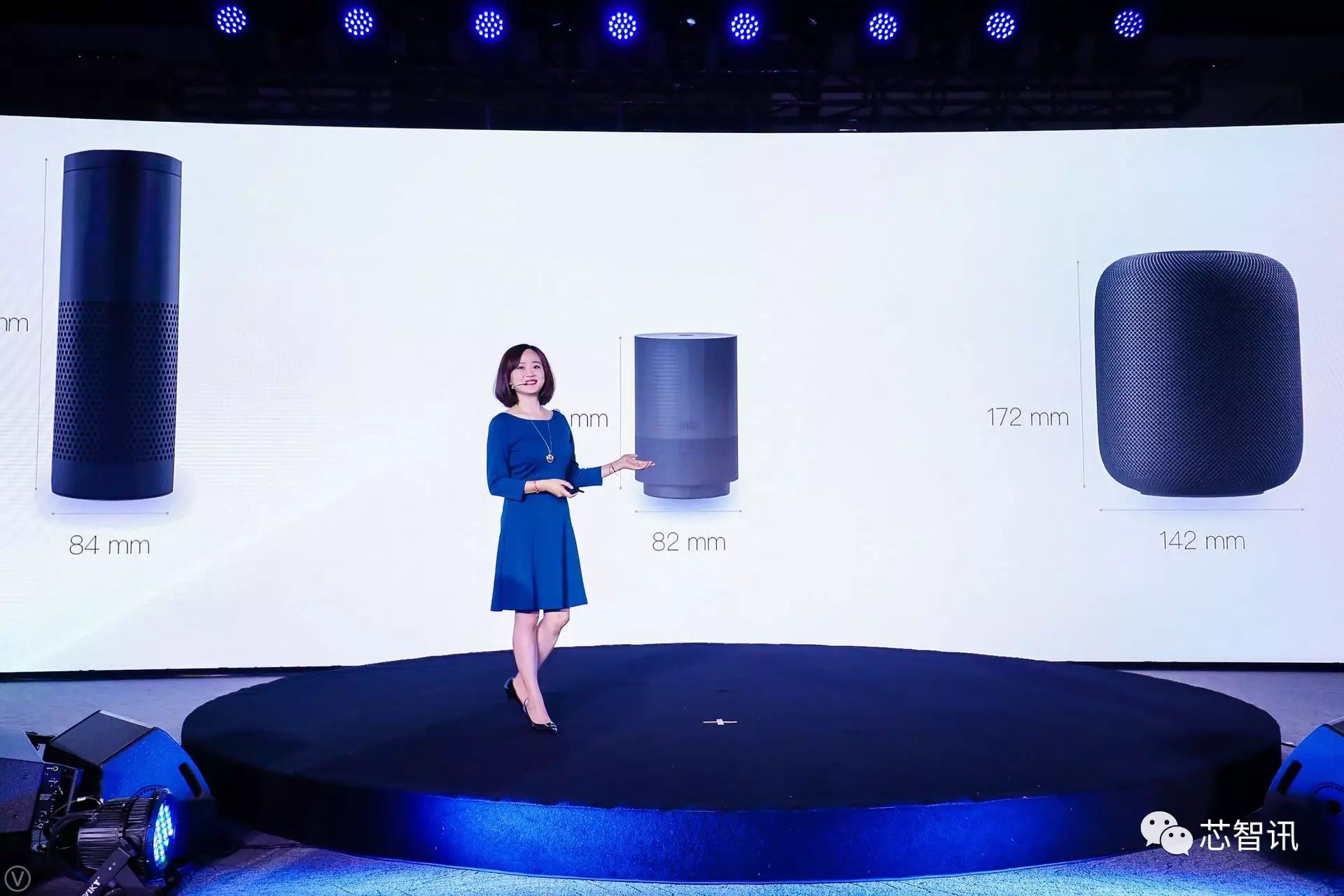
Firstly, in terms of design, the Tmall Genie X1 adopts a common cylindrical design, available in black and white colors, with a height of 128mm and a diameter of 82mm, making it more compact compared to the Amazon Echo and Apple’s HomePod.
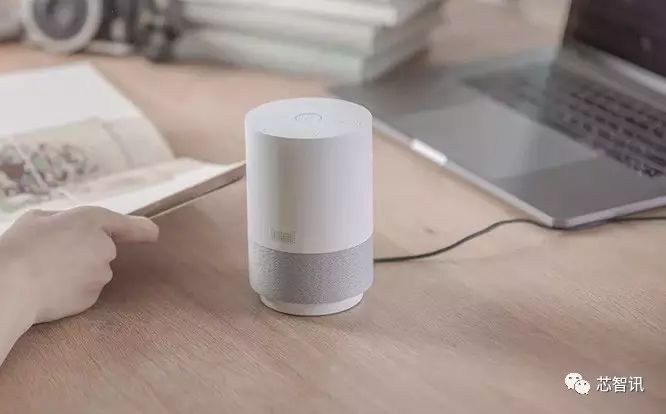
On the top center of the Tmall Genie X1, there is a mute button. When users press this button, the Tmall Genie X1 will immediately stop sound playback and cease voice recognition functions, ensuring user privacy.
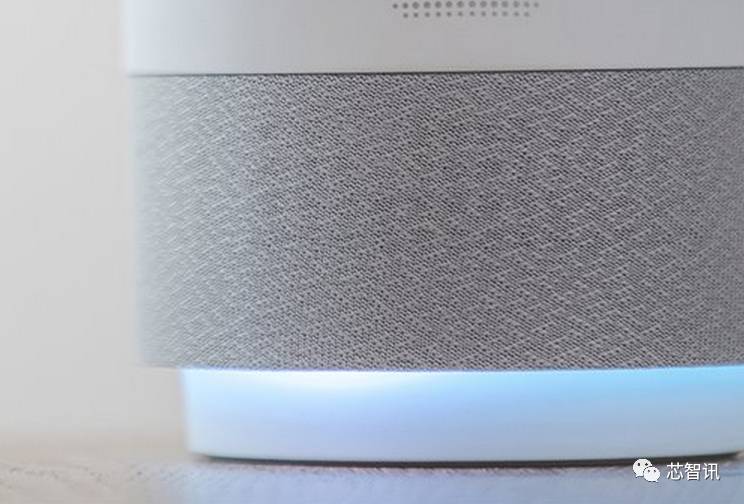
Additionally, the Tmall Genie X1 features a ring of hidden indicator lights at the bottom, which will light up to indicate user orientation based on sound, providing reminders, and the lights will change according to different functions and scenarios.

In terms of hardware configuration, the Tmall Genie X1 uses the MT8516 processor from MediaTek, which was released at this year’s Google I/O developer conference, specifically designed for smart voice assistant devices and smart speakers.
The MT8516 is based on a quad-core ARM Cortex-A35 architecture, with a clock speed of up to 1.3GHz, built-in WiFi 802.11 b/g/n, and Bluetooth 4.0. It also supports up to 8-channel TDM microphone array interfaces and 2-channel PDM digital microphone interfaces, making it very suitable for far-field voice control and smart speaker devices. According to Alibaba, compared to mainstream chips on the market, processing efficiency has improved by 25%, and power consumption has decreased by 32%. Furthermore, the Tmall Genie X1 supports one-click sound wave network configuration, with a setup time of less than 10 seconds.
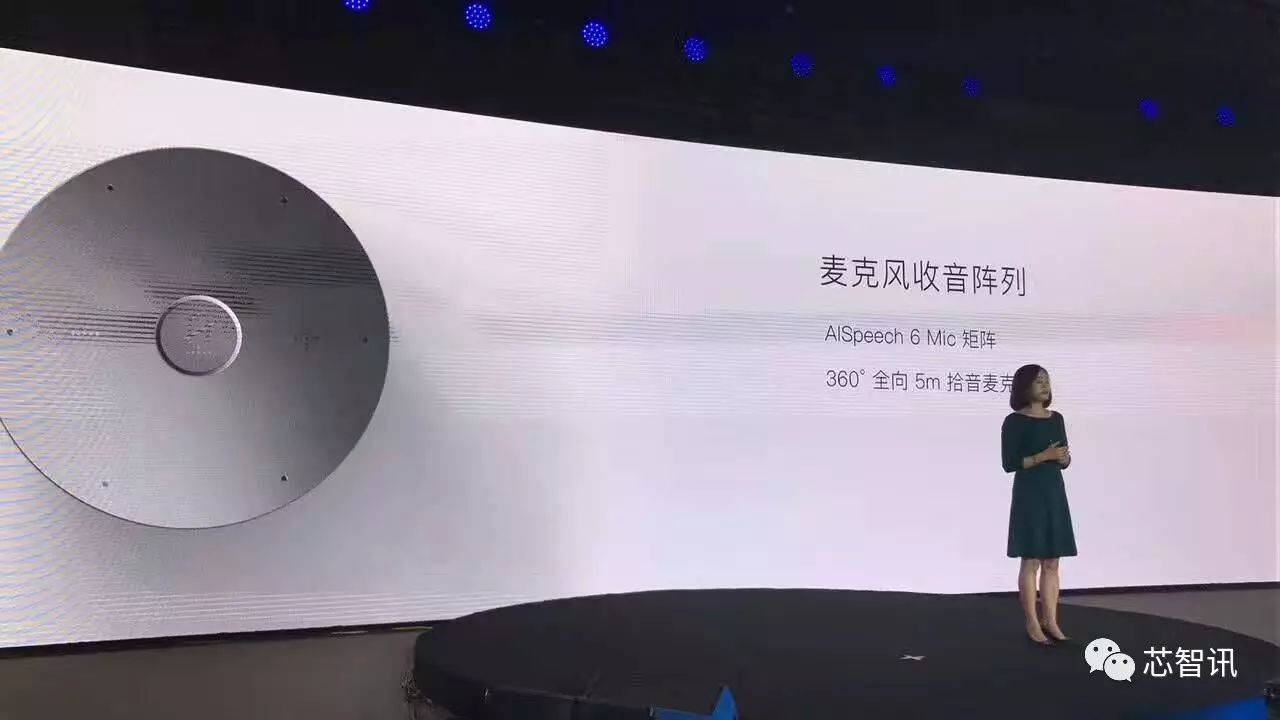
The Tmall Genie X1 is also equipped with a 6-microphone circular array solution from Sibo, supporting 360-degree omnidirectional sound pickup, and has been specially optimized for decoding, noise reduction, sound processing, and multi-channel collaboration, enabling voice recognition within a 5-meter range in a home environment. Users can simply say the wake word “Tmall Genie” to activate the Tmall Genie X1.
Moreover, the Tmall Genie X1 supports high-fidelity EQ adjustment, providing excellent sound quality. It also supports voiceprint recognition, allowing the same device to recognize up to 6 different voices.
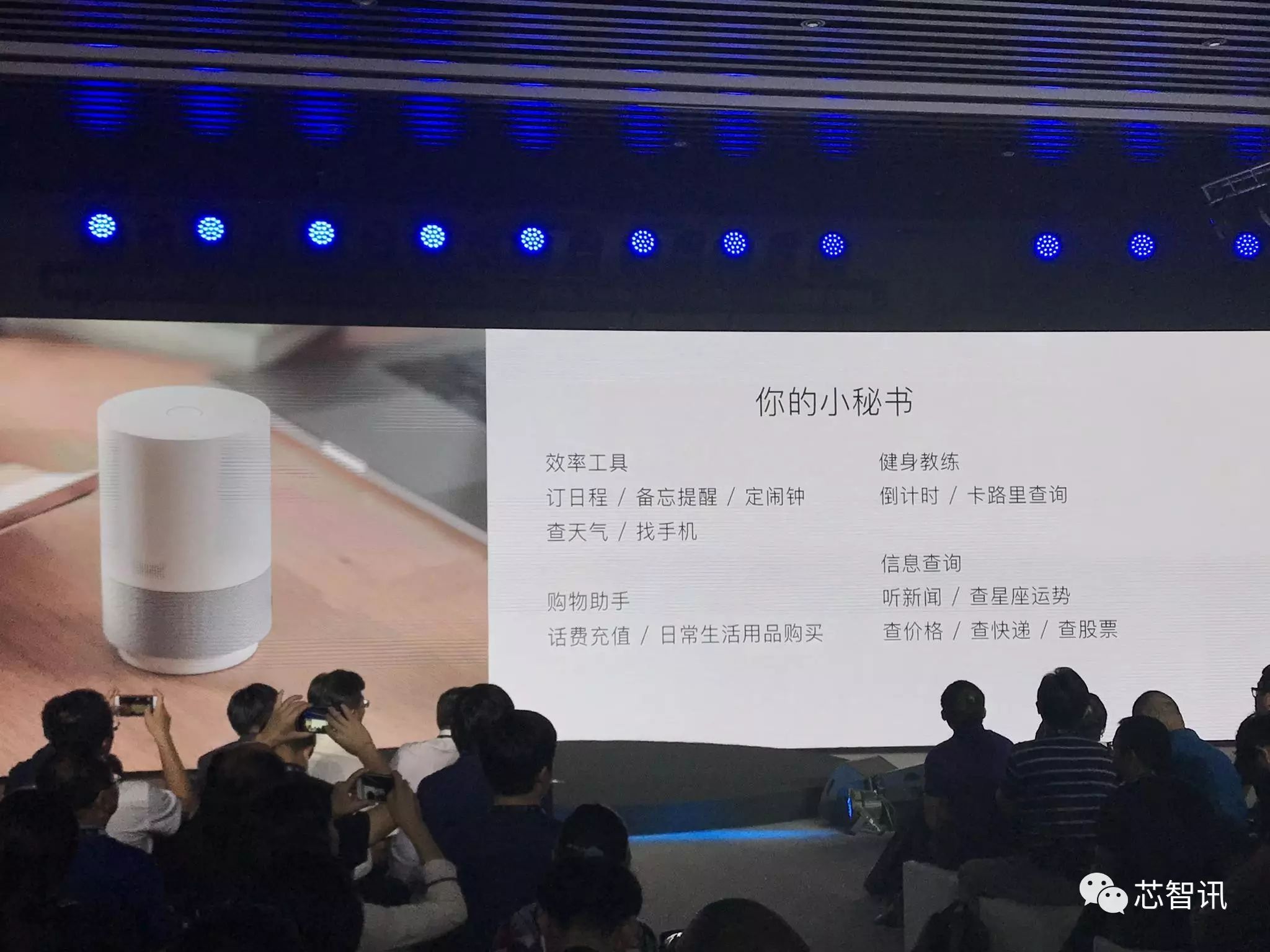
In terms of functionality, the Tmall Genie X1 is equipped with Alibaba’s first-generation Chinese human-computer interaction system, AliGenie, which supports a wide range of applications, such as a personal assistant tool that includes efficiency tools, scheduling, and reminder functions; audio music playback; shopping assistant for mobile top-ups, food delivery, and daily necessities purchases; and fitness coach functions like countdowns and calorie tracking.

From the logos of the partners displayed in the above image, it can be seen that many of our previous predictions were correct. “In addition to giving products AI capabilities, Alibaba also possesses a more powerful backend service capability, which is the advantage of the Tmall Genie X1 compared to JD’s Dingdong and other domestic smart speaker manufacturers.
For example, some of the most commonly used services by users at home with AI smart voice assistants include listening to music (Alibaba has Xiami Music), booking travel (online ticketing, Alibaba has Fliggy; ride-hailing, Alibaba has invested in Didi Chuxing; route planning: Amap), ordering food (Alibaba has invested in Ele.me), watching movies (Alibaba has Taopiaopiao), online shopping (Alibaba has Taobao, Tmall), and mobile top-ups (Alipay). In addition to these, Alibaba has many other services that can be integrated.
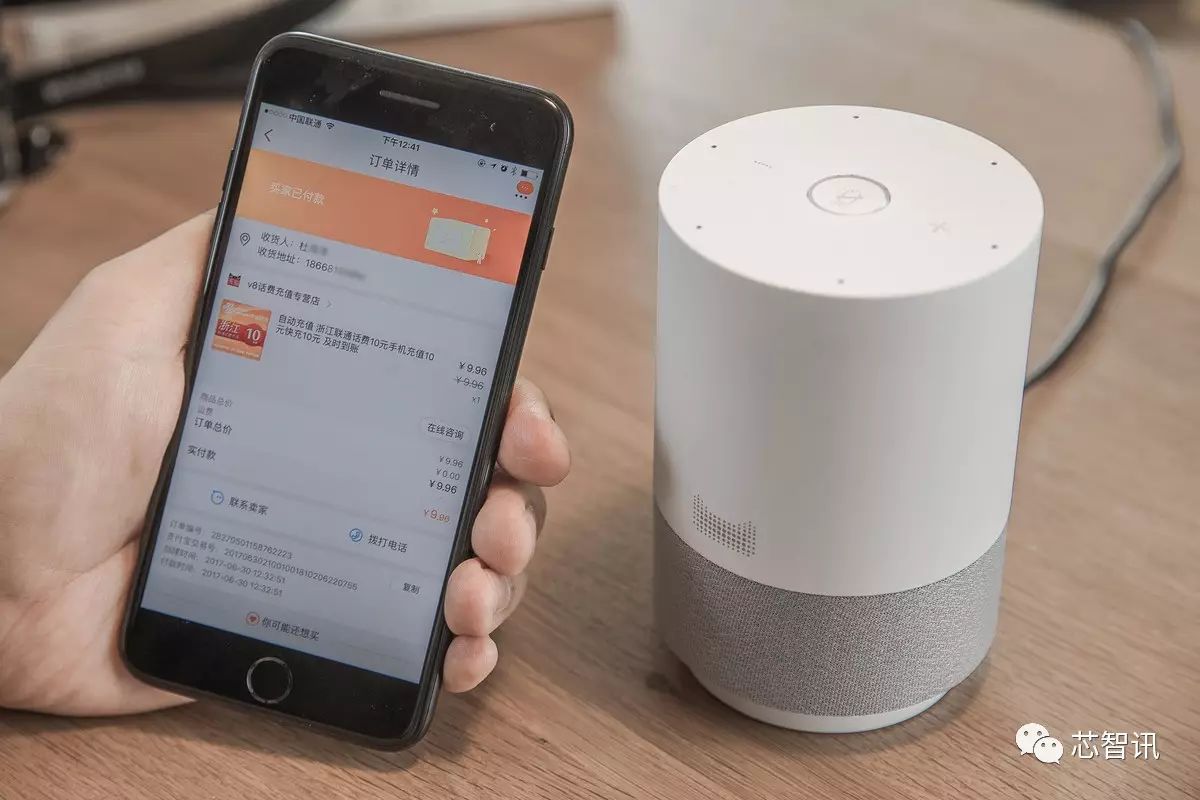
△ Using Tmall Genie X1 for mobile top-up
Of course, compared to Amazon’s 15,000 service applications, Alibaba’s voice service applications are still too few, but considering that Alibaba has just started, while Amazon’s Echo has been developing for three years.
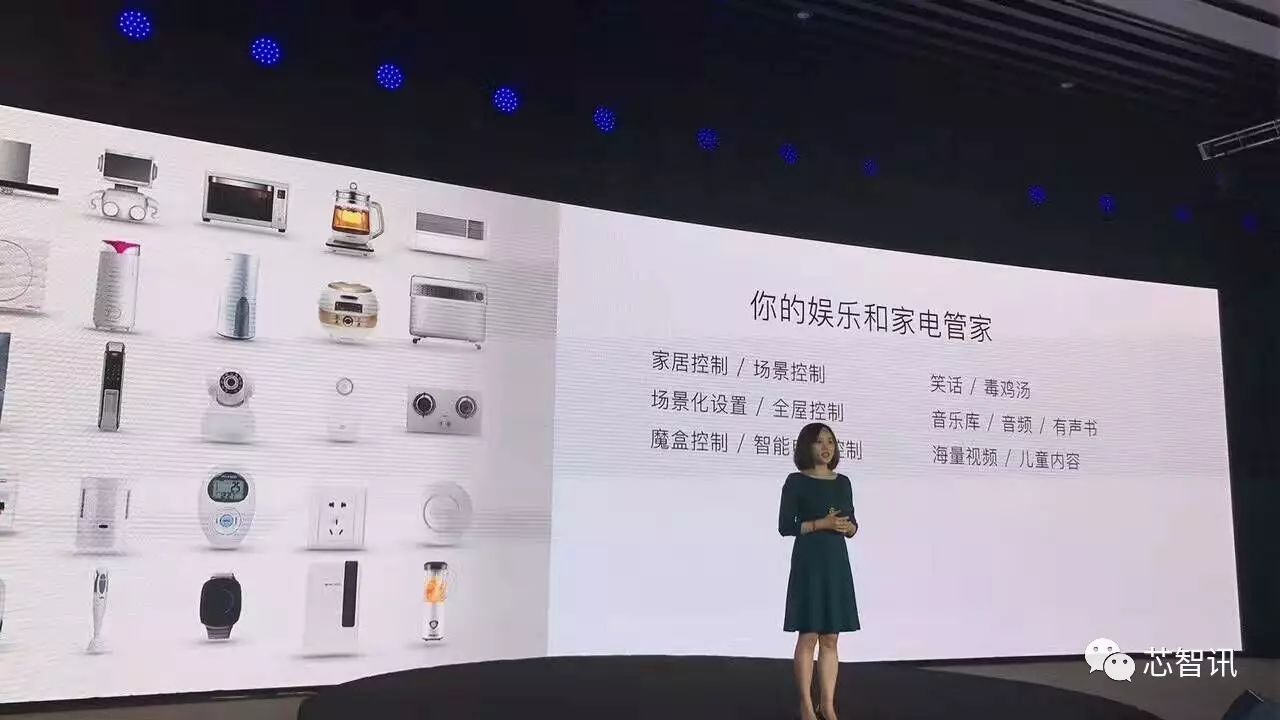
Additionally, the Tmall Genie X1 can control connected smart home products via voice.
Demonstration Video:
As for the pricing of the Tmall Genie X1, Chip Intelligence previously mentioned that the price would be very sharp, and indeed, it is only 499 Yuan. This price is significantly lower compared to the $349 Apple HomePod, $129 Google Home, and $139.99 Amazon Echo.
According to reports, the Tmall Genie X1 will begin limited public testing today, July 5th, and users and developers can apply for public testing on the Tmall Genie official website (bot.tmall.com). On August 8th, it will be officially released to Tmall members.
However, it should be noted that the Tmall Genie X1 seems to lack a built-in battery (to save costs?), so it must be plugged into a power source to operate. However, for a product primarily designed for home use, this does not seem to be a significant issue.
MediaTek Emerges as the Big Winner Behind the Scenes
Although MediaTek has faced setbacks in the smartphone market since the end of last year, it has been thriving in the Internet of Things market, especially in the currently booming smart speaker market, MediaTek is indeed riding high.
According to MediaTek’s Vice President and General Manager of the Home Entertainment Product Division, Yu Renjie, 80% of the chips in the smart speaker market in 2016 were supplied by MediaTek.
1. MediaTek Secures Amazon Echo Orders
Currently, the hottest smart speaker products on the market are Amazon’s Echo, followed by Google’s Google Home. Although Apple has also released the HomePod, its market share is still very low as it was just released.
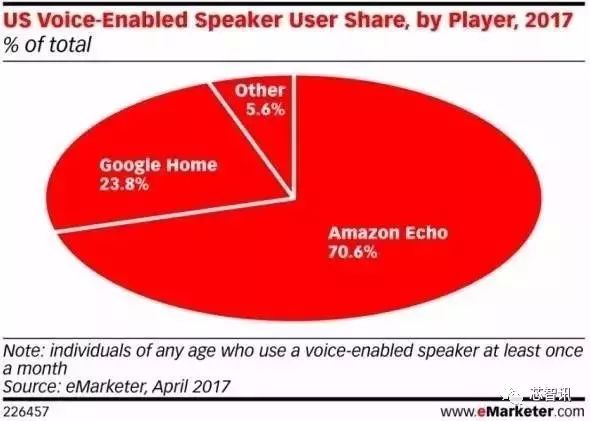
According to eMarketer data, in the first quarter of 2017, Amazon Echo’s market share in the U.S. smart voice speaker market reached 70.6%, making it the absolute leader, while Google Home ranked second with 23.8%, and other manufacturers (including Apple, Lenovo, LG, Harmon Kardon, and Mattel) shared the remaining 5.6% of the market.
Previously, we introduced in the article “The Smart Voice Assistant Device Market is Booming: Allwinner/Rockchip/MediaTek and Other Chip Manufacturers are Entering the Market” that the previous Amazon Echo used the TI DM3725 multimedia chip (integrating DSP), which still relied on the outdated ARM Cortex-A8 single-core architecture, and its wireless chip seemed to use Qualcomm Atheros QCA6234 (WiFi 802.11 b/g/n and Bluetooth 4.0). Clearly, its processor’s performance is not strong, and the multi-chip solution does not provide much cost advantage either. This has led Amazon to consider changing chips.
MediaTek’s newly launched MT8516 not only uses a more powerful 6-core ARM Cortex-A35 but also integrates WiFi 802.11 b/g/n and Bluetooth 4.0, providing outstanding performance and being a single-chip solution. Additionally, MediaTek’s pricing should be more competitive compared to TI’s solution.
According to the latest industry news, MediaTek has successfully replaced TI as the sole chip supplier for the new generation of Amazon Echo smart voice assistant products. This means that MediaTek, through its collaboration with Amazon, will occupy nearly 70% of the smart speaker market.
Furthermore, MediaTek has also secured chip orders for the new “smart assistant” device EssentialHome from Android’s father, Andy Rubin.
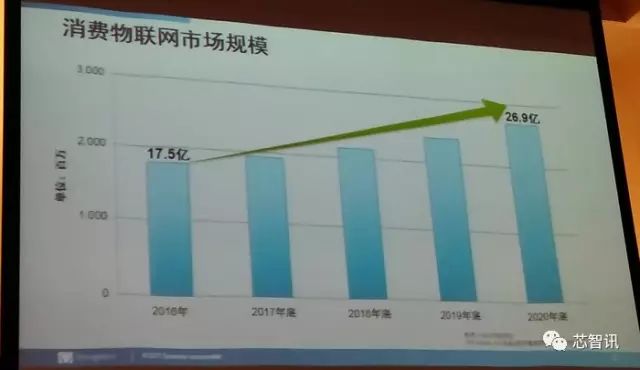
According to research institutions, since the launch of Amazon Echo in 2014, the U.S. virtual personal assistant device market has grown rapidly, with market shipments expected to reach 20 million units by 2017, a 188% increase compared to 2014. It is predicted that by 2020, 75% of American households will own virtual personal assistant devices. Therefore, by 2020, the number of virtual personal assistant devices in the U.S. alone is expected to reach 75 million units, achieving a 275% growth. If we look at the global market, this number could be even more astonishing.
Clearly, smart speakers have become the next generation of human-computer interaction products. MediaTek’s ability to secure a partnership with industry leader Amazon Echo means it has successfully positioned itself at the forefront of this trend.
Additionally, Google is also a potential customer for MediaTek. Google’s Google Home previously used a combination of Marvell 88DE3006 Armada dual-core ARM Cortex-A7 multimedia processor + Marvell Avastar 88W8897 (WLAN/BT/NFC). In comparison, MediaTek’s MT8516 single-chip solution is relatively advantageous.
If MediaTek can further secure orders for Google Home, it could mean that MediaTek is poised to capture over 90% of the smart speaker market. Of course, besides MediaTek, Rockchip and Synaptics are also eyeing Google Home’s orders.
Rockchip launched the RK3036 and RK3229 chips for the smart speaker market earlier this year, which are also competitive. Meanwhile, Synaptics has acquired Marvell’s multimedia business and voice technology company, which is expected to further strengthen Synaptics’ collaboration with Google.
2. MediaTek is Expected to Leverage Alibaba to Capture the Domestic Smart Speaker Market
Compared to the booming smart speaker market abroad, the domestic smart speaker market is still relatively flat. Although JD launched the first domestic smart speaker product Dingdong in 2015, its market performance has been mediocre due to a lack of sufficient backend application services to support it.
Additionally, while Amazon Echo and Google Home are available, their services are primarily based on English, and many services are difficult to implement in China. This has made it challenging for them to penetrate the Chinese market, thus providing opportunities for other domestic manufacturers.
Among these domestic manufacturers, Alibaba is the most capable and promising.
Today, Alibaba launched its first smart speaker product—the Tmall Genie X1, which not only has impressive hardware but also integrates a wide range of services, and its price of 499 Yuan is very competitive compared to Amazon Echo and Google Home. Its market performance should be promising.
The Tmall Genie X1 uses MediaTek’s MT8516 chip, and MediaTek is expected to successfully open up the domestic smart speaker market through its collaboration with Alibaba.
Moreover, Chip Intelligence mentioned in last week’s article:
Compared to Amazon and Google, Alibaba understands the Chinese market better, as it has the capability to provide localized services based on the Chinese language, as well as strong overseas market expansion capabilities.
Additionally, in terms of market strategy, we know that Alibaba is very aggressive in hardware pricing to seize market entry, as seen with the previous Tmall Magic Box. Furthermore, to promote its YunOS, Alibaba has previously subsidized many cooperating smartphone and OTT box manufacturers. It is believed that the pricing of the upcoming AI smart speaker from Alibaba will be very competitive, and Alibaba may also open its AI voice assistant to hardware manufacturers, potentially following the previous strategy used with YunOS, where not only software services are offered for free to hardware manufacturers, but there may also be subsidies to quickly capture this IoT entry point.
As we predicted earlier, Alibaba today also announced the launch of the AliGenie Developer Platform, aimed at four types of developers: including content developers, application developers, as well as smart home developers and hardware manufacturers.
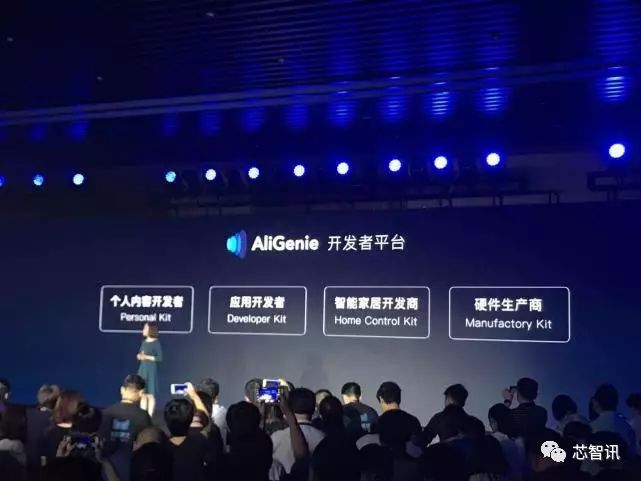
AliGenie, as software, must rely on hardware, so the open strategy of AliGenie is expected to further promote MediaTek’s market share in the domestic smart speaker market.
MediaTek’s IoT Layout
According to market research firm IDC, the global IoT market is expected to exceed $900 billion in 2017, and by 2020, the market size is expected to double to $1.46 trillion. In the next three years, the number of global IoT connected devices will exceed 30 billion.
Clearly, the IoT market will be another massive market following smartphones. MediaTek has also begun its layout early.
In addition to its success in the smart speaker market, MediaTek has also achieved outstanding results in wearable devices, shared bicycles, and smart TVs.
Although the wearable device market has cooled significantly in recent years, MediaTek remains the largest player in the current wearable market, with most wearable devices based on MediaTek’s MT25XX and MT26XX series chips. While there are other players like Junzheng and Qualcomm, MediaTek still holds the largest market share.
Additionally, in the currently booming shared bicycle market, MediaTek has unexpectedly become the biggest winner. Mobike’s little orange bike, ofo’s little yellow bike, and Bluegogo’s little blue bike all use MediaTek chips for positioning.
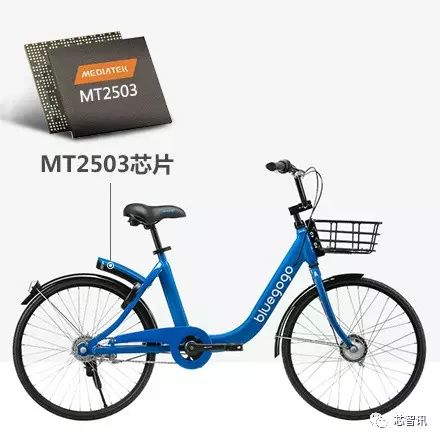
For example, the little blue bike uses MediaTek’s MT2503 chip, which was designed for wearable devices and launched at the end of 2015. This is a highly integrated, compact system-on-chip IoT chip, measuring only 5.4×6.2mm, with a single-core ARM-7EJ-S design and a frequency of 260MHz. Its main feature is support for GPS and Beidou multi-satellite positioning systems, with global satellite navigation system (GNSS) capabilities, Bluetooth 3.0 support, and an integrated 2G modem.
Mobike’s little orange bike and ofo’s little yellow bike use Simcom’s Sim800 module, but the integrated chips are still from MediaTek, with Mobike using the MT6261 chip, although GPS is not integrated. It is also reported that the next generation of ofo’s little yellow bike will still use MediaTek chips after upgrading to the “Beidou Smart Lock”.
According to MediaTek’s Vice President and General Manager of the Home Entertainment Product Division, Yu Renjie, “the domestic shared bicycle market was initially expected to be around 30 million units at the beginning of the year, but it now seems that the number could reach around 40 million this year. In the shared bicycle market, MediaTek has three main connections: one is a 2G module, one is Bluetooth unlocking, and the third is satellite positioning. MediaTek occupies over 90% of the market share for the 2G module. Notably, nearly half of the shared bicycles on the market use MediaTek’s MT2503 chip module.”
Recently, at the MWC Shanghai exhibition, MediaTek also launched its first NB-IoT system-on-chip MT2625 and partnered with China Mobile to release the smallest NB-IoT universal module. This will further strengthen MediaTek’s market share in the shared bicycle market and help it enter other cellular IoT markets.
In the TV box market, MediaTek has consistently performed well, and in the smart TV market, MediaTek has MStar, with many brand smart TV manufacturers adopting MStar chips.
At the same time, MediaTek has also launched corresponding solutions for the smart TV market. Recently, MediaTek introduced the MT5597 chip, which supports 4K smart TVs and is compatible with both Android TV 7.0 and Linux operating systems. It is expected that 4K smart TVs equipped with this chip will begin shipping by the end of the second quarter this year. Additionally, Yu Renjie revealed that MediaTek will collaborate with internet and TV manufacturers to launch 4K TV boxes in the second half of the year to meet market demand.
Regarding another hot automotive electronics market, MediaTek officially announced its entry into the automotive chip market on December 29 last year, focusing on four core areas: vision-based advanced driver assistance systems (ADAS), high-precision millimeter-wave radar, in-vehicle infotainment systems, and telematics, providing a complete and highly integrated system solution to global automotive manufacturers.

On February 23 of this year, MediaTek announced the launch of a high-precision positioning global satellite navigation system solution MT3303 for automotive and industrial applications. This solution integrates GNSS and memory chips, supporting GPS, Glonass, Galileo, and China’s Beidou satellite navigation system specifications.
Additionally, the product line of WiFi and Bluetooth transmission modules is also a powerful tool for MediaTek to compete in the IoT market. Because whether it is smart TVs, smart speakers, or laptops, they all require WiFi connectivity.
Yu Renjie stated that MediaTek’s market share in the WiFi 802.11ac standard is continuously increasing, and this division currently sees over 10% annual revenue growth.
Conclusion:
From the above introduction, it is clear that although MediaTek has faced setbacks in the smartphone market, it is performing very well in the IoT market, with a stable and comprehensive layout. With the rapid growth of the entire IoT market, MediaTek’s IoT business is also expected to achieve rapid growth.
“Last year, MediaTek’s total revenue was $8.7 billion, with the home entertainment division accounting for about 20% of the entire MediaTek Group’s revenue. This year, its revenue is expected to account for 25% of the entire group,” said Yu Renjie, Vice President and General Manager of the Home Entertainment Product Division. “The annual growth rate of the home entertainment division is expected to reach around 20% this year.”
Author: Chip Intelligence – Lang Kejian
—————————— Event Announcement —————————
With the rapid development of mobile payments and the smartphone industry, the biometric recognition industry has entered a golden age. The widespread adoption of fingerprint recognition technology in smartphones has also accelerated the implementation of new face and iris recognition technologies. With the rise of full-screen smartphones and the influence of manufacturers like Samsung and Apple, new technologies such as in-screen fingerprint recognition, iris recognition, face recognition, and voice recognition are about to become new ways to unlock smartphones.
Fingerprint recognition technology is flourishing, while iris, face, and voice recognition are vying for attention. Who will lead the new wave of biometric recognition development? Innovation or disruption? The biometric recognition industry and smartphone manufacturers are about to face new opportunities.
Chip Intelligence is tentatively scheduled to hold a biometric recognition forum on August 18, 2017, in Shenzhen. Interested manufacturers are welcome to contact us for more information!
Cooperation Phone: 18620305740 (or add WeChat)
Email Pre-registration: [email protected]